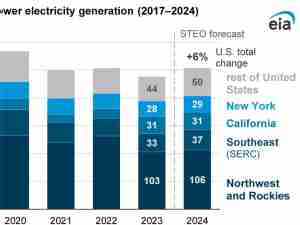The Biden administration moved Tuesday to ease gasoline shortages caused by a ransomware attack on the nation’s largest pipeline network, as concerns grew that spiking fuel prices and supply disruptions could hinder travel while the nation recovers from the Covid pandemic.
The Environmental Protection Agency waived gasoline volatility requirements in three Mid-Atlantic states and Washington, D.C., to bring more fuel to an area normally well supplied by the Colonial Pipeline. Hours later, the Department of Transportation announced steps that could lead to a waiving of the 101-year-old Jones Act to permit foreign tankers to transport gasoline and diesel to East Coast ports.
The actions are among several President Joe Biden can take to blunt the potential political fallout from fuel shortages and rising prices at the pump just as he’s trying to jump start the economy after the worst pandemic in a century.
“We’re going to move in lightning speed,” Homeland Security Secretary Alejandro Mayorkas said at a White House briefing.
Filling stations across the East Coast were reporting outages as Colonial Pipeline Co. had operations disrupted for the fourth day since hackers stole data and locked the company’s computers. North Carolina and Virginia have declared a state of emergency as tanks ran dry. Airlines and airports were also trying to manage jet fuel stockpiles.
Energy Secretary Jennifer Granholm said the Federal Railroad Administration was enlisting railroads to ensure fuel can be transported inland from ports and said the Federal Energy Regulatory Commission was directing pipeline companies to prioritize fuel shipments to where they are needed.

“We know that we have gasoline, we just have to get it to the right places,” Granholm said. “It’s not that we have a gasoline shortage, it’s that we have this supply crunch and that things will be back to normal soon and that we’re asking people not to hoard and know that we’re all over this.”
The Colonial Pipeline should be substantially operational by the end of the week or the weekend, she said. States most affected by the shutdown are North Carolina, South Carolina, Tennessee, Georgia, and southern Virginia, she said.
“We will have no tolerance for price gouging,” Granholm said at a White House briefing. “There should be no cause for hoarding gasoline.”
The Biden administration already issued an order Sunday extending the amount of time truck drivers can spend behind the wheel when transporting fuel across 17 states and the District of Columbia.
“It is hard for elected officials to do nothing when pump prices are rising,” said Kevin Book, managing director of ClearView Energy Partners. “The White House looks to be treading lightly.”
The staggered response so far reflects expectations, said Height Capital Markets analyst Benjamin Salisbury. Fuel waivers are “a fairly standard response to supply disruptions with a lot of precedent.”
From Virginia to Louisiana, convenience stores and corner gas stations are turning away customers as tanks tap out amid panic buying. An extended pipeline disruption could have far-reaching implications for East Coast states dependent on the pipeline, prompting bigger government interventions.
Tuesday’s order from the EPA temporarily allows the sale of conventional gasoline in areas where reformulated gasoline is required. It also allows the sale of gasoline that doesn’t satisfy requirements meant to help combat smog in certain areas. The order applies to terminal operators and owners, as well as the distributors and carriers of fuel.
After the waiver lapses May 18, fuel manufacturers would be barred again from producing or importing gasoline that doesn’t meet current volatility standards, though fuel in the distribution system can still be sold until it is depleted, the EPA said.
The move gives retailers the flexibility to market gasoline that might be available despite the Colonial Pipeline shutdown.
“I have determined that an ‘extreme and unusual fuel supply circumstance’ exists that will prevent the distribution of an adequate supply of compliant gasoline to consumers,” EPA Administrator Michael Regan said in a letter to local leaders describing the move.
Fuel waivers, commonly used to stem supply disruptions after hurricanes and other disasters, could encourage refiners to produce cheaper, more volatile gasoline that normally is blocked from sale in summertime months. It’s unclear, however, how much help they would be now, without a major pipeline to ferry the fuels to markets up and down the Atlantic Seaboard. Energy analysts say another benefit could come after the Colonial Pipeline restarts, by allowing refiners and blenders to market more varieties of fuel for regions short on gasoline.








